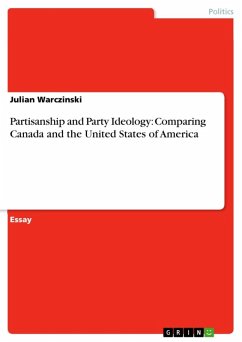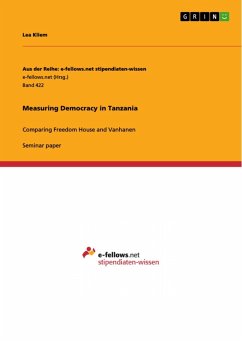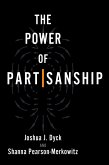Essay from the year 2007 in the subject Politics - International Politics - Region: USA, grade: 1,7, Free University of Berlin, language: English, abstract: Canada and the United States of America have equally developed a form of structural federalism, both use a single-member plurality election system and have similar social and economic class structures. In contrast to the two-party tradition of the US in a presidential system, Canada has developed a multiparty parliamentary system in which the legislative parties are cohesive and disciplined due to the historical influence of British Westminster System. In general party identification has been defined as "an attachment to a party that helps the citizen locate him/herself and others on the political landscape." The aim of this paper is to explore the possibility of shifts in ideological party identification with respect to the significantly different party systems in Canada and the United States, with special focus on the time span between 1984 and 2000. The central question discussed in this paper is whether or not there has been a significant change in partisan ideology in Canada compared to the United States between 1984 and 2000, and whether Canadian Partisans are more volatile compared to their southern counterparts in terms of ideological party identification.
Dieser Download kann aus rechtlichen Gründen nur mit Rechnungsadresse in A, B, BG, CY, CZ, D, DK, EW, E, FIN, F, GR, HR, H, IRL, I, LT, L, LR, M, NL, PL, P, R, S, SLO, SK ausgeliefert werden.









